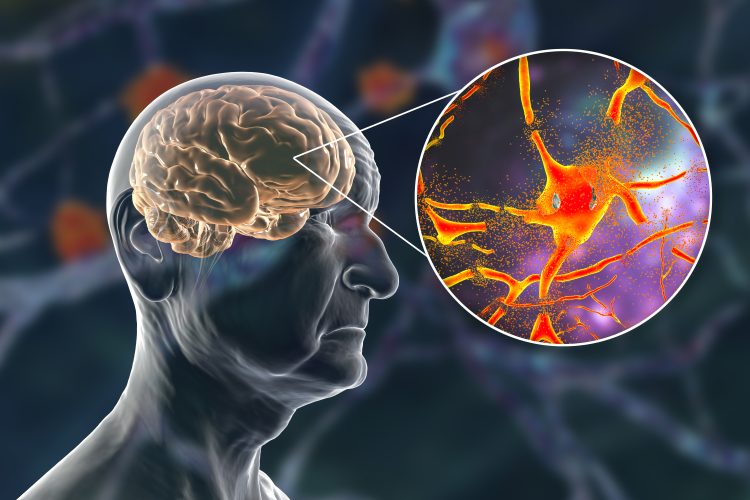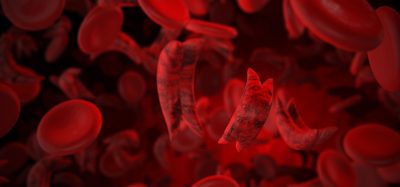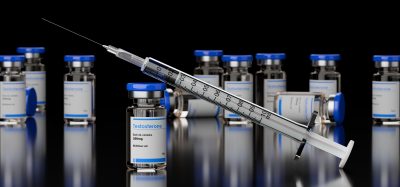Alzheimer’s treatment targets root causes, not just symptoms
Posted: 2 April 2025 | Drug Target Review | No comments yet
Porosome Therapeutics has made a groundbreaking discovery in Alzheimer’s research by targeting the disease’s molecular causes, focusing on restoring secretory and metabolic functions. This approach could not only slow progression but potentially reverse early-stage pathology.


Porosome Therapeutics Inc. has announced a major breakthrough in Alzheimer’s disease (AD) research, identifying the secretory dysfunction responsible for the disease and developing advanced therapeutic neuronal nanomachines. These innovations have the potential to revolutionise Alzheimer’s treatment and redefine research approaches beyond the traditional focus on amyloid accumulation.
The company’s latest findings indicate that restoring porosome function in combination with small molecule and peptide therapies may not only slow AD progression, but also reverse early-stage pathology. This marks a significant shift in the approach to treating the disease, targeting its root causes at the molecular level.
New insights into Alzheimer’s pathology
“For the first time in over a century since Alzheimer’s disease was identified, we have achieved a molecular-level understanding of how this condition impairs neurosecretion and disrupts communication within the brain, ultimately resulting in dementia,” said Dr Bhanu P. Jena, founder of Porosome Therapeutics. Dr Jena, a distinguished cell biologist known for his discovery of the porosome nanomachine, explained that the team used AlphaFold, an artificial intelligence-driven tool, to determine how beta-amyloid (Aβ) disrupts essential protein interactions within the neuronal porosome complex, impairing neurotransmitter release. Immunocytochemistry studies of human brain tissue have validated these AI-driven findings.
With this advancement, Porosome Therapeutics is uniquely positioned to develop innovative therapies that directly target the secretory dysfunction at the core of AD.
Pioneering new treatment approaches
Continuing research through Porosome Therapeutics’ subsidiary, NeuroTher LLC, has led to a new class of treatments aimed at restoring neuronal function by addressing both secretory and metabolic defects in AD. Preclinical studies led by Dr Xin Qi, an expert in mitochondrial pathology and peptide therapies, have validated a novel therapeutic strategy that tackles both secretory dysfunction and mitochondrial defects at the cellular level.
AD is characterised by the loss of neurons due to secretory and metabolic defects, leading to mitochondrial dysfunction and neurotransmitter depletion.
AD is characterised by the loss of neurons due to secretory and metabolic defects, leading to mitochondrial dysfunction and neurotransmitter depletion. Through AlphaFold analysis, NeuroTher has discovered that beta-amyloid peptide alters proteins within the porosome. By restoring functional porosomes in neurons affected by AD, neurotransmitter release, neural communication, and plasticity could potentially be recovered, which are crucial components for perception, thought, and memory.
“This research has underscored the crucial role of proteins associated with mitochondrial dynamics in cellular functions and their beneficial link to porosomes,” stated Dr Qi. “We are currently investigating the impact of porosomes on neurodegenerative diseases and how this discovery could reshape treatment methodologies and research approaches, offering a beacon of hope for patients and families around the globe.”


Restoring porosome function in combination with small molecule and peptide therapies may not only slow Alzheimer’s progression, but it could also reverse early-stage pathology. This marks a significant shift in the approach to treating the disease, targeting its root causes at the molecular level.
A revolutionary path for Alzheimer’s treatment
Recent preclinical studies utilising this approach have demonstrated promising results in restoring neuronal function. Unlike conventional therapies that focus on symptom management, this new approach targets the disease at the cellular level by repairing mitochondrial and secretory functions. This strategy positions Porosome Therapeutics at the forefront of Alzheimer’s research and treatment development.
This new approach targets the disease at the cellular level by repairing mitochondrial and secretory functions.
Porosome Therapeutics has submitted the findings of its study to a leading, peer-reviewed scientific journal, emphasising its commitment to rigorous scientific validation.
“I am strongly convinced by our findings regarding the future of Alzheimer’s research,” said Dr Juan Ruiz, MBA, former Deputy Director for Science at the U.S. Food and Drug Administration’s Centre for Drug Evaluation and Research and a member of the Scientific Advisory Board at Porosome Therapeutics.
He continued: “Restoring neuronal function at the cellular level has the potential to revolutionise our approach to treating Alzheimer’s disease, instilling renewed hope in millions of patients and their families worldwide. It is inspiring to witness the advancements in porosome replacement therapy research and the promise it holds for individuals affected by conditions previously deemed untreatable, including Alzheimer’s disease, cystic fibrosis, and other significant health challenges.”
Porosome Therapeutics’ new treatment for cystic fibrosis was granted Orphan Drug Designation by the FDA in 2025, further highlighting its pioneering role in medical research.
Commitment to transformative medicine
Guillermo Marmol, CEO of Porosome Therapeutics, said: “This discovery marks a significant advancement in the quest for effective Alzheimer’s treatments. Through transformative and innovative research, in collaboration with leading scientists from academic and research institutions, Porosome Therapeutics is committed to the accelerated development of ground-breaking therapies and partnerships with pioneering organisations and regulatory agencies to swiftly deliver safe, life-changing medicines for Alzheimer’s and beyond.”
Porosome Therapeutics remains dedicated to advancing research and translating scientific discoveries into innovative therapies that address the fundamental causes of neurodegenerative diseases, offering new hope for millions of patients worldwide.
Related topics
Cell Therapy, Molecular Biology, Pharmacology
Related conditions
Alzheimer's, Cystic fibrosis
Related organisations
Porosome Therapeutics
Related people
Dr Bhanu P. Jena, Dr Juan Ruiz, Dr Xin Qi








